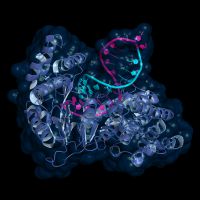Telomeres are the end caps of chromosomes, protecting the DNA complexes from deterioration during cell division. Telomere shortening is considered a marker of cellular aging, and prematurely shortened telomeres are thought to contribute to atherosclerosis . Wayne Alexander, from Emory University School of Medicine (Georgia, USA), and colleagues employed a mouse model of atherosclerosis to research the potential for alpha lipoic acid – a potent antioxidant for which previous studies have suggested anti-inflammatory effects. Previous studies have reported that alpha lipoic acid prompts smooth muscle cells that surround blood vessels to produce PGC1 (peroxisome proliferator-activated receptor gamma co-activator 1-alpha (PGC-1[alpha]) – a compound previously known to control how skeletal muscle response to exercise. In this study, the team observed that alpha lipoic acid appeared to stimulate telomerase – the enzyme that lengthens telomeres. The study authors highlight: “the importance of PGC-1[alpha] in ameliorating senescence, aging, and associated chronic diseases, and may inform novel therapeutic approaches involving electrophilic specificity.”
Anti-Aging Effects of Antioxidant Revealed
Xiong S, Patrushev N, Forouzandeh F, Hilenski L, Alexander RW. “PGC-1[alpha] Modulates Telomere Function and DNA Damage in Protecting against Aging-Related Chronic Diseases.” Cell Rep. 2015 Aug 19. pii: S2211-1247(15)00825-6.
RELATED ARTICLES




